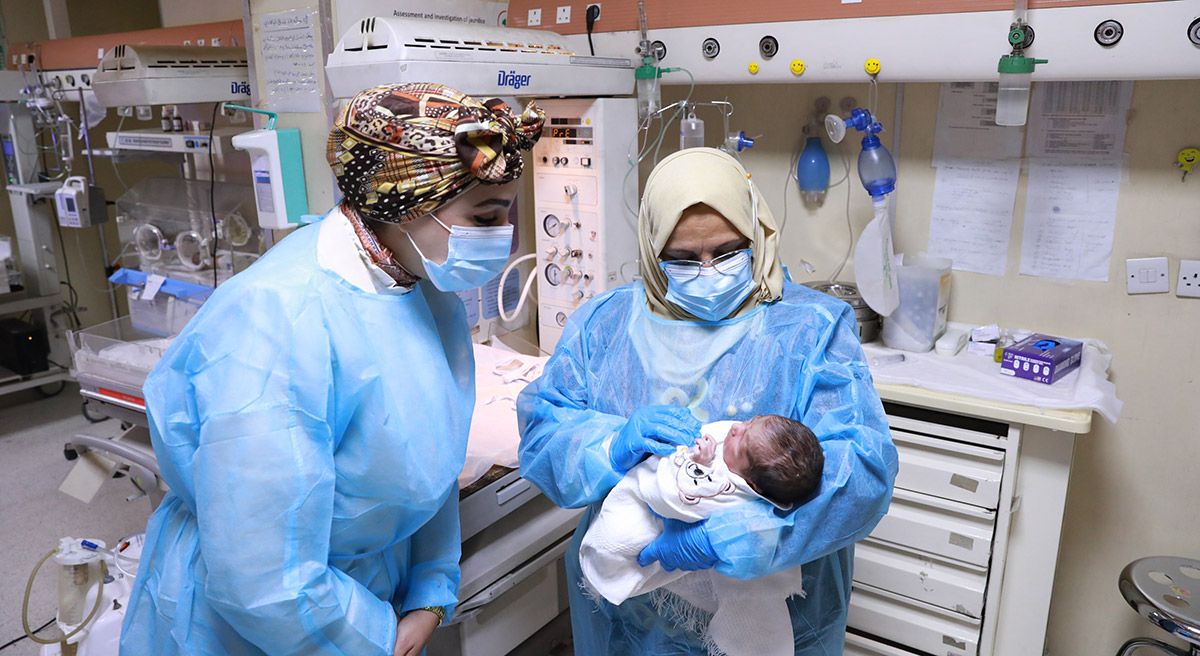
12 May 2024, Cairo, Egypt – Nurses and midwives make up more than half the health workforce in most countries of the WHO Eastern Mediterranean Region. Today, as we celebrate International Nurses Day 2024, we also reflect on the many challenges faced by nurses in the Region.
In the past decade, the density of nurses and midwives has not grown in most countries of the Region, and the ratio of nurses and midwives to doctors has decreased. These trends are likely to continue if current levels of production and employment capacities are maintained.
Nurses and midwives are confronted with challenging working conditions, low pay, heavy workloads and limited career opportunities. All of these factors help to drive the global and regional shortages of these health workers. Too often, female workforce also face gender discrimination and threats to their safety and security, including gender-based violence while on the job.
“Across the Region, on average, there are just 16.5 nurses and midwives for every 10 000 people, while the global average is 39.4 nurses and midwives per 10 000 population. In some countries, the figure falls to a single digit. If current trends continue, there will be a shortage of 1.2 million nurses across our Region by 2030. That would affect every country of the Region,” explained Dr Hanan Balkhy, WHO Regional Director for the Eastern Mediterranean.
WHO is committed to support effective action both at the country level and across the Region. To date, progress to strengthen the nursing and midwifery workforce in the Region has not reached the desired pace, despite commitments and continued efforts to address the challenges these health workers face. For instance, in October 2023, at the 70th session of the WHO Regional Committee for the Eastern Mediterranean, WHO Member States called for accelerated action to strengthen the health workforce.
Now, the new Regional Director has committed to take forward this agenda, by focusing on the health workforce as one of three flagship initiatives of the WHO Regional Office for the Eastern Mediterranean.
Investment in the health workforce is a catalyst for progress in sustainable development. Nurses and midwives are the cornerstone of health care, providing vital services from maternal health to emergency response, and driving primary health care. They are pivotal in shaping health policies and health systems. Increased investment in their education and employment is crucial to meet health needs.
By empowering nurses and midwives, governments boost female workforce participation, because most nurses and midwives are women, and unlock the economic potential of more women. Ultimately, the improved health care access that these health workers help provide also liberates the economic potential of entire communities.
On International Nurses Day, WHO reiterates its call to action to invest in and empower our nurses and midwives – the backbone of our health systems.
Media enquiries
For more information, please contact:
Dalia Mohsen, Strategic Communication for Health, WHO Regional Office for the Eastern Mediterranean
Email:
This e-mail address is being protected from spambots. You need JavaScript enabled to view it




